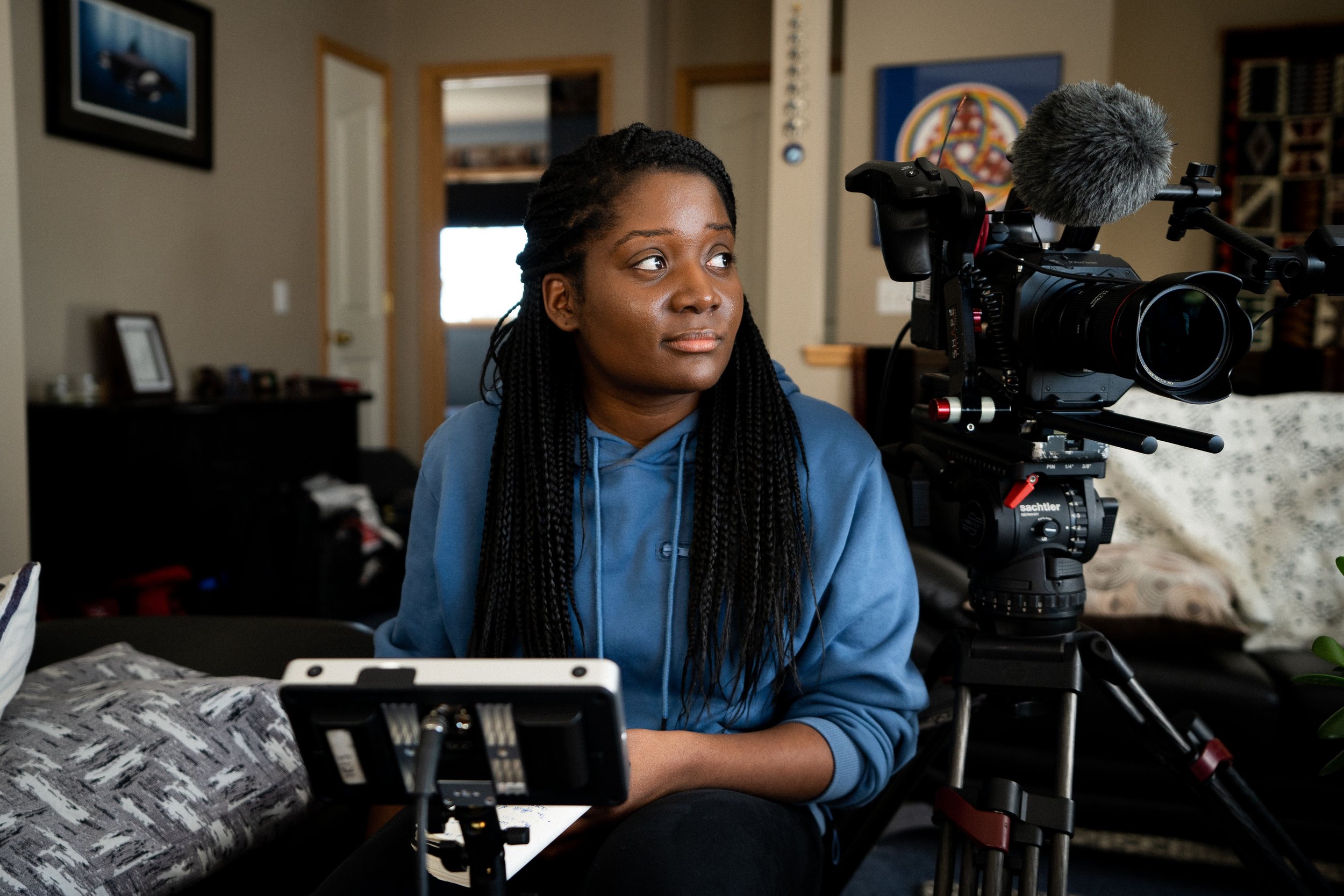The authenticity behind Yasmine Mathurin’s storytelling
Award-winning filmmaker Yasmine Mathurin chats with guest contributor Severina Chu about her debut feature documentary film—One of Ours— and the nuances of authentic storytelling and representation
Photo courtesy Yasmine Mathurin.
When Yasmine Mathurin decided to pursue her first feature documentary film, it was a leap of faith. After completing her undergraduate and master’s degrees and a job at CBC, her debut feature, One of Ours, the story of Josiah Wilson, was realized and captured audiences across Canada.
Born in Haiti, Wilson was adopted into a Heiltsuk family at a young age. He grew up surrounded by the culture of the Heiltsuk Nation, but his identity was put into question when he was barred from playing in the 2016 All Native Basketball Tournament. By chance, Mathurin had known Wilson’s family since she was 11.
"I knew that I had a connection with Josiah, as somebody who was not only a Black Canadian but Haitian as well. I could tell that story,” said Mathurin. After reaching out to Wilson’s dad to get permission from the family, Mathurin was invited to follow the story.
In a story that is both Haitian and Indigenous, Mathurin worked hard to fill in the gaps to tell an authentic story. She started by reading as much as she could about the Heiltsuk Nation. Eventually, she connected with Heiltsuk and Mohawk director Zoe Hopkins and Afro-Haisla video journalist Lee Wilson, who both served as creative consultants for the film. “Their insight was incredibly valuable for me to understand the point of view of the Heiltsuk Nation.”
The topic of who is the right person to tell a story comes up often in the screen world. "The stakes were high because of the responsibility of telling the story accurately,” said Mathurin. “As a Haitian Canadian, these opportunities don't come often. The pressure was incredibly high."
After a five-year process, One Of Ours was released in 2021 and won the special jury prize at the 2021 Hot Docs Canadian International Documentary Festival. The film was met with praise from critics and most importantly, the Wilson family themselves.
She was also nominated for Best Feature Length Documentary at the 2022 Canadian Screen Awards. Mathurin happened to be in the Zoom call when director Barry Avrich won and claimed that it doesn’t matter who tells Black stories. "The reason we have this history of stories getting lost is because it's not the right storyteller telling these stories for those communities," said Mathurin.
After conversations with her colleagues and an open letter to the Canadian Academy penned by equity-seeking organizations, including BIPOC TV & Film, Mathurin said it was an emotional moment to see such solidarity. She hopes that film crews can learn from this incident and make a conscious effort to include BIPOC folks on set, especially if it is their story to tell.
In an industry where awards play a part in your career, Mathurin says to always stay true to yourself in the stories you choose to tell.
FURTHER READING
ON-SCREEN PROTOCOLS & PATHWAYS: A Media Production Guide to Working with First Nations, Métis and Inuit Communities, Cultures, Concepts and Stories (imagineNATIVE, Indigenous Screen Office)
BEING SEEN: Directive for Creating Authentic and Inclusive Content (Black Screen Office)

